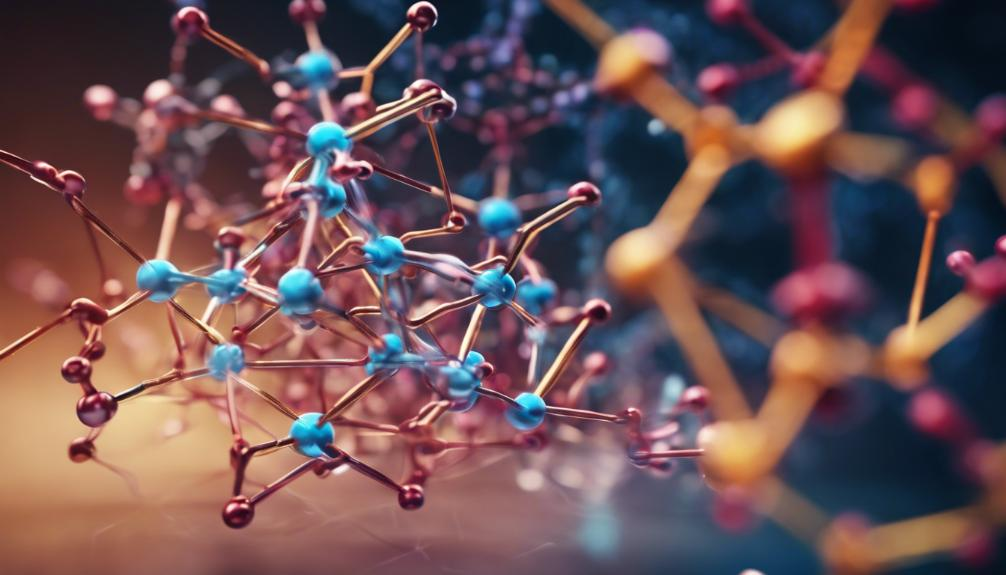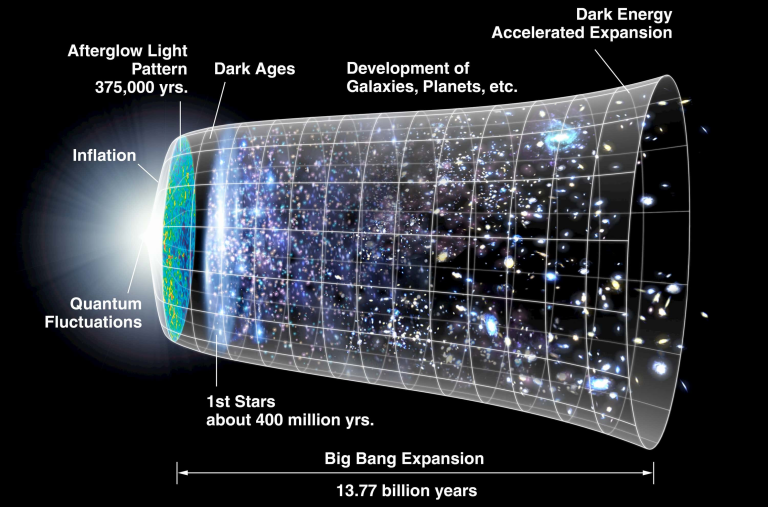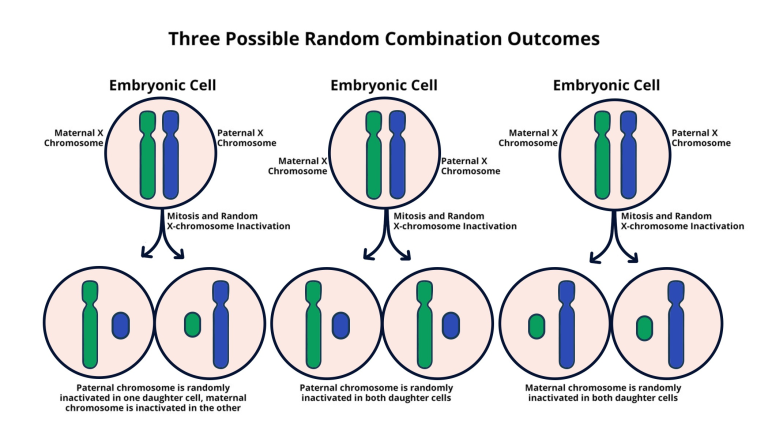Molecular quantum computing represents a groundbreaking frontier in the realm of quantum technology, where researchers are learning to harness the unique properties of molecules for advanced computational purposes. For the first time, a team led by Harvard scientists has successfully trapped molecules and conducted quantum operations, paving the way for increased speeds in ultra-high-speed experimental technologies. This milestone corresponds with the use of trapped molecules as qubits, which serve as the foundational elements for quantum computing, and offers significant possibilities for scaling quantum logic gates. By exploring the complexities of molecular systems, these innovative approaches may extend the capabilities of quantum computing beyond traditional constrictions imposed by simpler particles. As developments in this field continue to evolve, the future may hold extraordinary advancements across diverse sectors such as medicine and finance, driven by the immense potential of molecular systems in quantum operations.
Exploring the domain of molecular quantum computing unveils a dynamic approach to harnessing quantum mechanics for computational advancements. This field delves into the intricate roles of trapped molecules, transforming how quantum logic gates and operations are understood. The utilization of molecular systems seeks to leverage their complex internal structures, offering a new paradigm for executing quantum tasks that were once dominated by simpler entities like ions and atoms. As researchers continue to innovate, the interplay between molecular interactions and quantum processes promises to unveil groundbreaking technologies that can further advance computation and information processing. Ultimately, this evolution in quantum computing marks a significant leap towards realizing the full potential inherent in molecular architectures.
The Breakthrough in Molecular Quantum Computing
In a groundbreaking achievement, researchers have successfully trapped molecules for the first time to perform quantum operations, marking a new era in the field of molecular quantum computing. This innovative approach harnesses the benefits of ultra-cold polar molecules, which serve as qubits—the foundational elements of quantum technology. For the last two decades, scientists have grappled with the complexities associated with molecular structures, leading to the reliance on simpler systems such as trapped ions or superconducting circuits. This historic experiment not only demonstrates the feasibility of using molecules but also lays significant groundwork for more advanced quantum computational systems.
The research conducted by Kang-Kuen Ni and his team highlights the unique potential of molecular systems in revolutionizing quantum computing. By focusing on sodium-cesium (NaCs) molecules, they successfully utilized optical tweezers to create stable environments that allowed for precise quantum operations. This meticulous manipulation of molecular interactions is set to fuel further exploration in molecular quantum computing, where the intricate properties of molecules can be leveraged to enhance computational efficiency and speed. As the complexity of quantum operations increases, the adaptability of molecular systems positions them as a compelling medium for future quantum technologies.
Understanding Quantum Operations and Logic Gates
Quantum operations serve as the foundation for Quantum Information Processes, enabling complex computational tasks that surpass the capabilities of classical systems. Unlike traditional logic gates that operate on binary bits, quantum gates manipulate qubits, allowing them to exist in superpositions. This trait opens the door to simultaneous computations across multiple states, significantly enhancing the power of quantum computers. The Harvard team’s work on developing the iSWAP gate is a noteworthy example of how quantum logic gates can facilitate crucial operations by enabling entanglement—an essential feature for leveraging quantum computing’s full potential.
The implementation of quantum logic gates within molecular systems creates new avenues for experimentation. By controlling qubit states through entanglement, researchers can initiate a range of operations that immensely benefit from the unique characteristics of molecular interactions. This transitioning between entangled and non-entangled states underscores the importance of molecular quantum computing in achieving unprecedented scalability and stability in quantum circuits. With the ongoing developments in this area, the future looks promising for integrating molecular systems into mainstream quantum computing frameworks.
Trapping Molecules and Creating Entangled States
The process of trapping molecules using advanced techniques such as optical tweezers significantly minimizes molecular motions, paving the way for reliable quantum operations. In the recent study, the team effectively stabilized sodium-cesium molecules in an ultra-cold environment, allowing them to focus on the intricate interactions that govern their behavior. By executing controlled rotations and aligning the molecules, they successfully formed entangled two-qubit Bell states, showcasing a 94% accuracy rate. This breakthrough exemplifies how harnessing molecular systems can lead to new methods for achieving high-fidelity quantum operations.
Creating entangled states is vital in quantum computing, as it enables the unique correlation of qubits regardless of the distance separating them. The ability to manipulate these states with molecular systems not only enhances coherence but also improves the overall reliability of quantum operations. The findings from Ni’s team suggest that continued efforts in trapping and controlling molecules will result in more sophisticated molecular quantum computers, capable of handling increasingly complex computations. As researchers explore this frontier, the quest for enhanced entanglement and stability in molecular frameworks continues to drive excitement and innovation.
The Future Prospects of Molecular Systems in Quantum Technology
The research indicates promising trajectories for the future application of molecular systems within the quantum computing landscape. As scientists progressively unravel the complex dynamics of molecules, the potential to innovate quantum technologies expands significantly. The intricate internal structures of molecules offer unique features not found in simpler qubit systems, including richer information encoding and more profound entanglement possibilities. This exploration could lead to the development of novel quantum algorithms and computational methods, further pushing the boundaries of current technological capabilities.
By leveraging their understanding of quantum mechanics and molecular science, researchers are poised to create ultra-high-speed quantum computers that outperform classical models. As such, molecular quantum computing stands on the cusp of becoming a transformative force across various sectors, including cryptography, materials science, and complex system modeling. The ongoing collaboration among leading physicists and enhancements in experimental techniques suggest that the coming years will likely yield significant advancements, unraveling new dimensions in both quantum theory and practical applications.
Challenges and Innovations in Molecular Quantum Computing
As with any pioneering scientific endeavor, molecular quantum computing presents unique challenges, particularly in managing the stability and coherence of trapped molecules. Historically, the erratic motion of molecules has interfered with their performance as qubits, impacting the reliability of quantum operations. However, the recent development of methods to stabilize molecular systems, such as trapping them in ultra-cold environments, has provided innovative solutions to these longstanding issues. Future research focused on optimizing these techniques will be crucial for unlocking the full capabilities of molecular quantum computing.
Innovations in molecular quantum computing extend beyond mere stabilization; they encompass new strategies for implementing quantum error correction and fault tolerance. As the community continues to explore the peculiarities of molecular interactions, the drive for creating more resilient quantum systems intensifies. With ongoing efforts to refine existing methodologies and develop novel approaches, researchers are expected to make substantial progress toward overcoming the obstacles that have historically limited the application of molecular systems in quantum operations.
Quantum Computing: Bridging Theory and Practical Application
The transition from quantum theory to practical application involves translating complex quantum mechanics principles into usable technology. Molecular quantum computing stands at the intersection of scientific inquiry and practical innovation, integrating fundamental research with the prospects of real-world applications. The findings from Kang-Kuen Ni’s team bring forth exciting possibilities for building quantum computers that not only demonstrate the theoretical constructs of quantum mechanics but also provide tangible benefits across diverse fields such as healthcare, finance, and artificial intelligence.
By bridging the gap between theoretical frameworks and practical implementations, the advancements in molecular quantum computing can lead to revolutionary technologies, such as ultra-secure communication systems and sophisticated data processing algorithms. Continued collaboration among researchers from various disciplines will be essential in transforming theoretical ideas into practical innovations that enhance the performance of quantum systems. As the exciting journey of molecular quantum computing unfolds, the potential to harness the universe’s quantum bits in meaningful ways expands exponentially.
Exploring the Synergy of Molecular Chemistry and Quantum Mechanics
The synergy between molecular chemistry and quantum mechanics is reshaping the landscape of quantum computing. By utilizing the unique properties of molecular systems, researchers are unlocking new dimensions of computational power that were previously unattainable. The harnessing of chemical properties, such as molecular polarity and interaction dynamics, offers profound insights into building more efficient quantum architectures. As scientists delve deeper into the intersection of these sciences, the potential to enhance quantum operation precision and scalability becomes increasingly feasible.
Integrating molecular chemistry with quantum computing knowledge empowers researchers to explore novel pathways for innovation. For instance, the ability to utilize molecular spins and resonant frequencies expands the toolkit available for manipulating qubits, ultimately leading to advancements in quantum communication and information storage. The collaboration between chemists and physicists, as exemplified by Ni’s recent research, emphasizes the importance of interdisciplinary approaches in tackling complex scientific challenges. As these fields converge, they open exciting new frontiers in technology and computational sciences.
The Role of External Funding in Quantum Research
External funding plays a pivotal role in the advancement of quantum computing research, determined by agencies and institutions committed to fostering scientific innovation. The support from organizations like the Air Force of Scientific Research and the National Science Foundation has illuminated crucial paths for uncovering breakthroughs like those in molecular quantum computing. By investing in emerging technologies, these funding sources enable research teams to explore bold ideas and experimental setups that would otherwise remain untested, bolstering the potential for revolutionary developments.
An influx of financial resources not only supports experimental research but also facilitates collaboration among interdisciplinary teams aiming to solve complex challenges in quantum computing. Enhanced partnerships among scientific fields, backed by external sponsorship, create rich environments where collective insights drive progress. As the significance of molecular quantum computing continues to rise, securing ongoing funding will be essential to maintain momentum and broaden the spectrum of exploration in this exciting and rapidly evolving domain.
The Implications of Molecular Quantum Computing for Industry
Molecular quantum computing holds far-reaching implications for various industries, revolutionizing areas such as pharmaceuticals, materials science, and energy systems. The ability to model molecular interactions at unprecedented speeds could lead to breakthrough discoveries in drug development and chemical synthesis. By applying quantum computations derived from the properties of trapped molecules, researchers can simulate complex molecular behaviors, vastly accelerating the design of novel compounds and materials tailored for specific applications.
Similarly, industries reliant on computational research, like finance and logistics, can benefit from the enhancements molecular quantum computing brings to data analysis and predictive modeling. The capacity to process vast amounts of information and derive correlations through entangled qubits is expected to transform decision-making processes, rendering them more informed and rapid. As industries begin to leverage molecular quantum technology, the integration of these advancements will surely catalyze profound changes in methodologies and operational efficiencies.
Frequently Asked Questions
What is molecular quantum computing and why is it important?
Molecular quantum computing involves utilizing molecules as qubits—fundamental units of information—in quantum computing systems. This approach promises to enhance computational speed and efficiency by leveraging the complex internal structures of molecules, facilitating quantum operations that can surpass the capabilities of classical computing.
How do trapped molecules contribute to quantum operations in molecular quantum computing?
Trapped molecules, such as ultra-cold polar molecules, are used as qubits in molecular quantum computing. They allow researchers to perform quantum operations by exploiting electric dipole-dipole interactions to execute fundamental quantum tasks like creating entangled states, which enhance the computational power of quantum systems.
What are quantum logic gates and their role in molecular quantum computing?
Quantum logic gates are essential components in quantum computing, functioning similarly to classical logic gates but operating on qubits. In molecular quantum computing, gates like the iSWAP gate manipulate the states of trapped molecules, enabling entanglement and facilitating complex quantum calculations.
What challenges have researchers faced when utilizing molecular systems in quantum computing?
Historically, the complexity and fragility of molecular systems posed challenges for their use in quantum computing. Their erratic movements often disrupted coherence, a critical factor for reliable quantum operations. Recent advancements in trapping and stabilizing molecules in ultra-cold environments have begun to address these challenges.
How do entangled states enhance the capabilities of molecular quantum computing?
Entangled states are a powerful feature of quantum computing, where qubits become correlated, allowing for complex computations that classical computers cannot perform. In molecular quantum computing, achieving entangled states using trapped molecules increases the processing power and opens new possibilities for advanced quantum technologies.
What breakthrough did the Harvard team achieve in molecular quantum computing?
The Harvard team successfully trapped sodium-cesium (NaCs) molecules and performed quantum operations for the first time, creating a two-qubit Bell state with 94% accuracy. This achievement is a significant milestone in molecular quantum computing, providing a foundation for constructing future molecular quantum computers.
How does using optical tweezers help in molecular quantum computing experiments?
Optical tweezers use precisely focused lasers to manipulate and trap tiny particles, such as molecules. In molecular quantum computing, they help stabilize and control trapped molecules in ultra-cold environments, minimizing their motion and enhancing the accuracy of quantum operations.
What potential applications could arise from advancements in molecular quantum computing?
Advancements in molecular quantum computing could lead to revolutionary breakthroughs across various fields, including medicine, science, and finance. The unique properties of molecules may enable the development of faster, more efficient quantum technologies capable of solving complex problems beyond the reach of classical computers.
| Key Points |
|---|
| A team led by Kang-Kuen Ni has trapped molecules for quantum operations for the first time. |
| The achievement involves using ultra-cold polar molecules as qubits, the basic units of quantum technology. |
| This breakthrough is vital for constructing a molecular quantum computer, a goal pursued for 20 years. |
| The researchers successfully demonstrated an important iSWAP gate that allows entanglement of molecules. |
| Molecular quantum computing could lead to unprecedented advancements in various fields due to its enhanced speed. |
| The study indicates that controlling molecular interactions could optimize quantum computing technologies. |
| This research has been supported by various scientific institutions, showing strong collaborative efforts. |
Summary
Molecular quantum computing is poised to revolutionize computational technologies by utilizing the complex structures of molecules to improve qubit scalability and processing speeds. The recent breakthrough by Kang-Kuen Ni and his team in trapping molecules for quantum operations marks a significant milestone that could lead to rapid advancements in various scientific fields. By harnessing the unique properties of molecular systems, researchers are paving the way for a new era in quantum computing, where faster and more efficient computations become possible.





